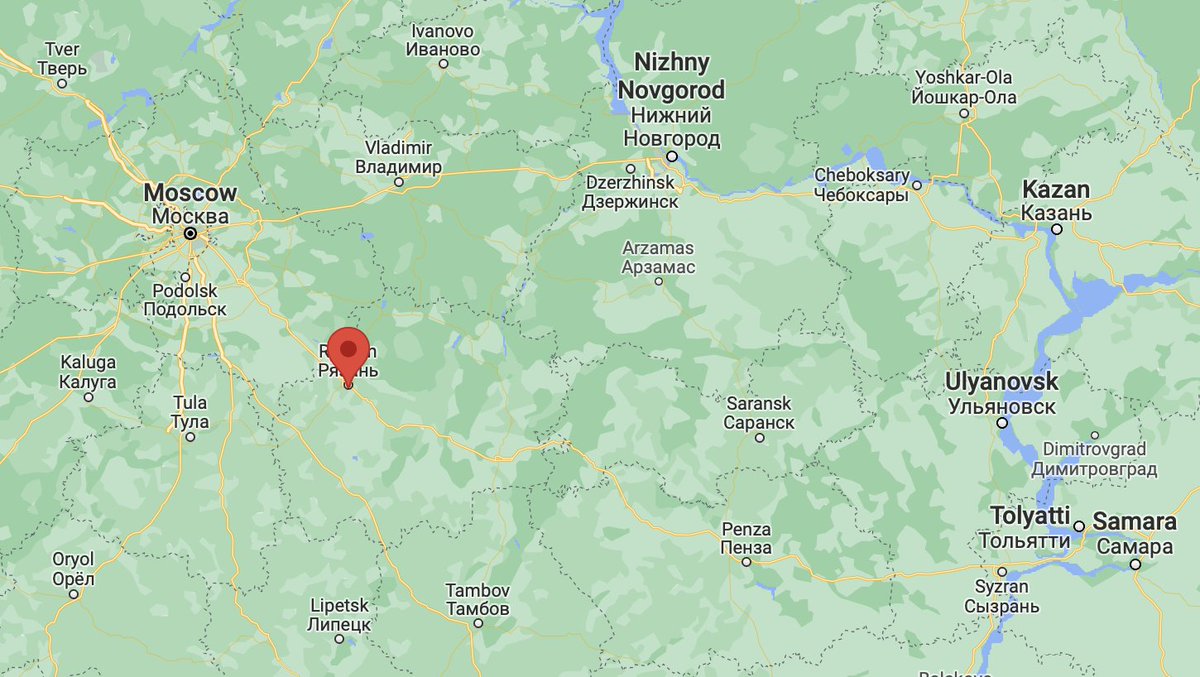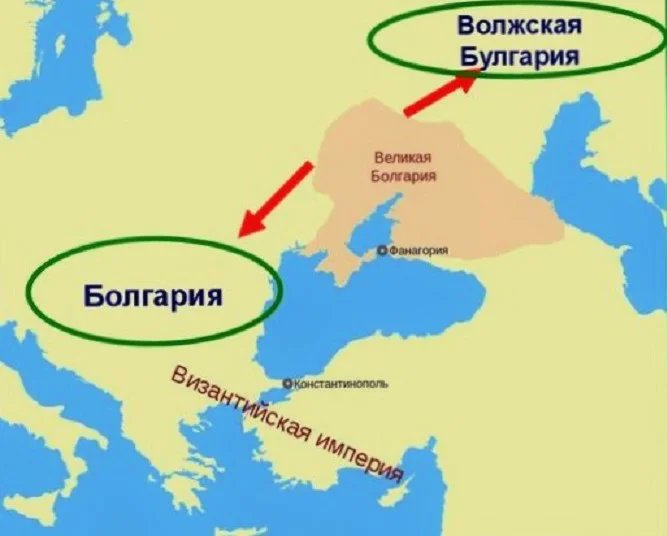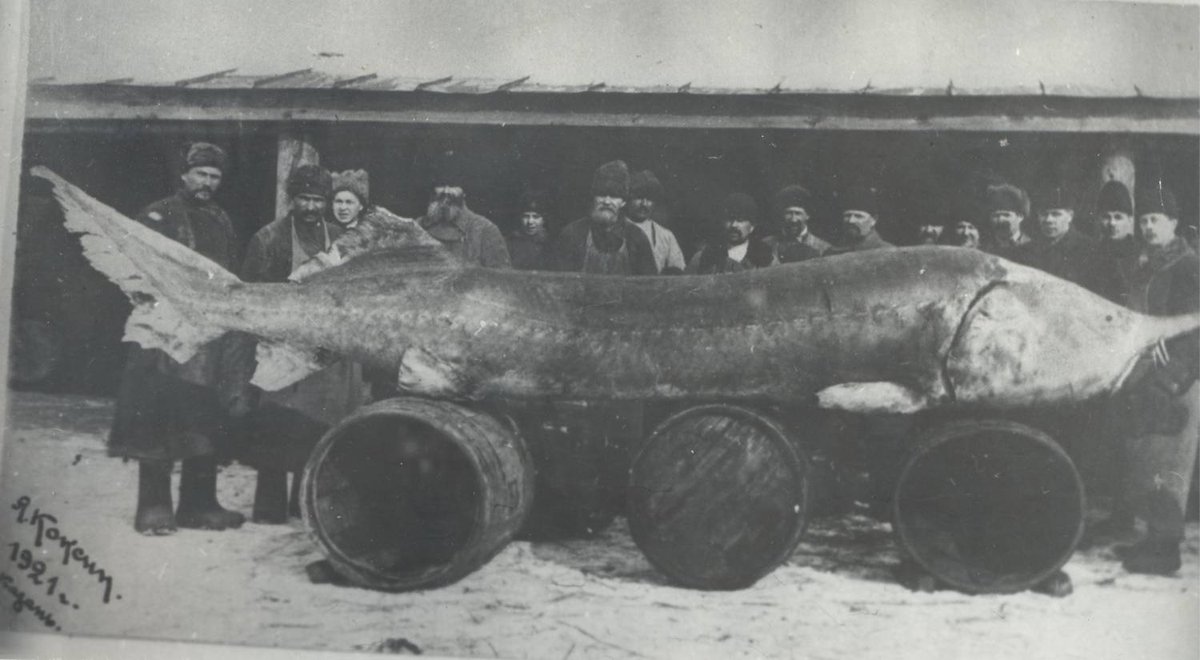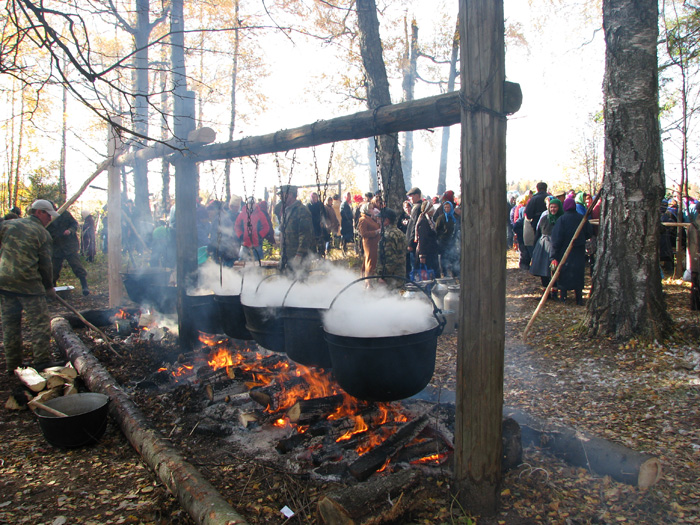The second cluster of ethnic republics in Russia is Idel-Ural or Volga-Ural region, shaped by Volga river and Ural mountains. 'Volga' is the Slavic name of the great river, 'Idel' is Turkic one. So the term you choose can reflect your identity and political affiliation (thread) 

While the North Caucasus is a mosaic of myriads of cultures, languages and ethnicities, ethnic situation in Idel-Ural is somewhat simpler. Before the Russian (red) conquest there were two big ethnic groups here - Turks (shades of green), and Finno-Ugrics (everyone else) 

Of course, it's more nuanced than that. To start with, Tatars and Bashkirs speak mutually intelligible Turkic languages, which can be even considered the dialects of one - Kipchak language. Tatars and Bashkirs are Kipchak-speaking Sunni Muslims 

With Chuvashs it's more tricky. Let's look at the map of Turkic languages in Eurasia. You see big groups: Oghuz (Turks, Azeri, Turkmen), (Uzbek, Uyghur), Kipchak (Tatar, Bashkir, Kazakh, Kyrghyz), Siberian (Yakut, Altai, Tuva, Hakas). And a lonely purple dot. That's Chuvashia 

Chuvash are alone and isolated in a sense that Chuvash language is the last living tongue of the Bulghar-Oghur family. Which used to be prominent in the past, but then mostly died away. It's the last relict of Old Great Bulgaria (I'll return to this later) 

Now let's talk of Finno-Ugrics. 'Mordva' people are a Russian invention in a sense that they never considered themselves one people. They are two separate people - Erzya and Moksha. They are called 'Mordva' largely because Russian didn't see much difference anyway 

In the past space habituated by the Erzya and Moksha (as well as other Finnics) was waaaay larger than now. For example, names of Ryazan and Arzamas are both refer to Erzya. They were both Russian forts built in what was back then Erzya territory 

Mari people also have been historically divided to two groups - Hill Mari living on the higher right bank of Volga and Meadow Mari living on the left . Why does current Mari El Republic lie on the left bank? Well, because Hill Mari are almost completely assimilated by Russians 

Does it mean all Mari live in their republic? No. The strip of their settlement stretches eastward with a big cluster in Bashkortostan. Actually those Maris in Bashkortostan are considered to preserve their culture and religion in the most authentic form 

This is a sacred wood where the worshipping takes place. While further to the West communist regimes were destroying churches, mosques, synagogues, in this region Soviets were cutting down the sacred woods - even in the 1960-1970s, as a fight against religion 

Now let's go deeper in history. In the early Middle Ages all or nearly all of the population of the Idel-Ural region was Finno-Ugric. Some speculate there were some Turks or even Balts, but not much remained from them
Deep south on the Black Sea shore there was a strong confederation of nomadic Turks - Great Bulgaria 

They reached the peak of their might under Khan Kubrat. Before his death Kubrat assembled his sons. He broke a branch and then asked them to break a big bundle. Nobody could. You see said Kubrat, if you stick together nobody will break you. But you can be easily broken one by one 

He wanted them to stand together. They did not. Five sons of Kubrat divided his horde to five smaller hordes. Some of them were destroyed by Khazars. But two survived. Third son of Kubrat Asparukh led his horde do Danube and founded the Danube Bulgaria, which is independent now 

While Kubrat's second son Kotrag led his horde northeast to the middle Volga and settled there. His descendants established Volga Bulgaria 

It would be wrong to consider the Volga Bulgaria a Bulgar ethnostate. Not true at all. It was rather a loose tribal federation where Bulgars were a dominant tribe. The federation included various Turkic tribes, Magyars (not all made it to Pannonia) but majority were Finnic
In 922 Bulgaria converts to Islam. Inb Fadhlan, the envoy of the Abbasid Caliph comes all the way to Bulgaria and eltabar (the king) accepts the Message of Muhammad from his hands. Btw I recommend reading Inb Fadhlan's memories - they're an invaluable source on the region and era 

Geography helped a lot. As you see, Bulgaria sits right on the Volga way which connects Middle East (specifically Greater Iran) with northern forests, Baltic and ultimately with Europe 

Which meant that the price difference between the regions Bulgaria had access two was enormous. Some of the most precious export goods for the Muslim world included furs and slaves 

Bulgaria had two main adversaries. One was Russian principalities. An interesting case from Lavrentyevskaya Chronicle. When Prince of Kiev Vladimir the Red Sun (the one who accepted Christianity) launched an expedition against Bulgaria, his forces captured a bunch of Bulgarians 

But Vladimir's uncle Dobrynya looked at the captives and said 'They are all in leather boots. They are not gonna pay us tribute. Let's go look for people wearing lapti' 

Lapti were a cheap shoes from the tree barks. Who wears them? Simple people - the one who are supposed to be paying tribute to those stronger than them 

Of course Russian continued their attacks. This for example is Church of the Intercession on the Nerl - built by the prince of Vladimir Andrei Bogolubskii in memory of his son who was killed during a raid on Volga Bulgaria 

Another major adversaries of Bulgaria were Turkic nomads who called themselves Kipchaks. Russian called them Polovtsy (половцы) and Europeans - Cubans 

Their area of settlement. They are called here 'a state' but that's incorrect. They were rather many hordes led by many independent khans. They were just culturally similar, but not politically united 

Kipchaks constantly raided Bulgaria - and Russian principalities. Both wars were extremely brutal and bloody. But - unlike Bulghars - Russian princes constantly married Kipchak women
As a result by the times of Mongol invasion Russian princes were mostly Kipchak by blood. You can look at the Gerasimov's reconstruction of facial features of Andrei Bogolubski, considered to be the founder of Russian absolute monarchy 

As a result Russian princes and Kipchaks often united for combined assault on Bulgaria which made the situation far more complicated for them. And then - in 13th c - Mongols arrived 

Mongols crushed every single power in the region and submitted them all to the Mongol empire. But its unity was short lived. Very soon descendants of Chinghis Khan divided his empire to independent khanates one of which is now called the 'Golden Horde' 

Ofc it's completely ahistorical. Nobody called them the Golden Horde back then. The official name of the state was 'Ulus Juchi', the fief of Yuchi. Juchi was the eldest son of Chinghis Khan. The father granted him all the lands westward 'to the last sea'. Juchi never ruled them 

Juchi died before his father, perhaps killed by Chinghis Khan who never liked him, suspecting he was not his biological child. Juchi was probably a biological son of Chinghis Khan's merkit enemy who abducted his wife and Chinghis Khan only later managed to get her back 

But Juchi's sons lived. And after Chinghis Khan's death Mongol nobility decided that they should have their share of the pie. So the point of the entire western expedition 'to the last sea' was to create a kingdom where Juchi's heirs could rule. That's why - Ulus Juchi 

Unofficial name however was Desht-i-Kipchak, the Steppe of Kipchaks. Why? There were never many Mongols there, most of the Mongol army returned back to Central Asia immediately. So the demographic majority of the steppe were Kipchaks who quickly assimilated their conquerors
In 1352 after the assassination of Khan Janibek The Desht-i-Kipсhak enters the civil war, lasting decades. After the Kulikovo Battle it was temporarily united by Khan Tuktamysh who was however reckless enough to quarrel with Tamerlane 

So Tamerlane entered the Desht-i-Kipchak and meticulously destroyed its every single city one by one, massacring the population. The country never really recovered. In 1382 it was still strong enough to bring Moscow into submission, but after 1400s - not anymore 

Bulgaria also never really recovered. Its cities - Bulghar, Bilar, Suvar were burnt to ashes and people killed or enslaved. Culture also changed. After 1400 Bulgar language disappears from tombstones completely. Now all grave inscriptions were written in Kipchak
It seems that not the Mongol but rather Tamerlane's invasion brought the break with prior tradition. Mongols aimed to create new kingdom. Tamerlane didn't intend to conquer - he simply burnt everything to the ground. Old Bulgarian cities laid in ruins and were never reconstructed 

Instead new city boomed out of almost nothing. It was Kazan. Kazan was a small, unimportant border fortress under Bulghars but now it literally skyrocketed in population and importance. Why? Why did people flock here instead of rebuilding their old cities? Let's look at the map 

If you look at the google maps, you can see that Kazan stands on Volga. That's true - for now. But it wasn't true back then 

The level of Volga rose very much in the 20th c. Because under the Soviets both Volga and Kama were blocked by huge hydroelectric dams. So now Volga is not really a river. It's now a system of lakes. That changed climate, killed biodiversity 

In the bygone age, when Volga used to be a river, it had a lot of fish. Including big fish. See beluga (a sturgeon) from a Kazan Museum caught in 1902. It had around 100 kgs of black caviar. No such fish anymore - dams killed everything 

Before the dams raised the level of the water, Kazan did not stand on Volga. It stood on Kazan river and was in 7 kms away from Volga. 7 kms of swampy terrain. A black line below is the only paved road built to connect the city with the Volga bank through this swamp 

And this is why Kazan boomed in the 15th c as the new center. Old cities of Desht-i-Kipchak and Bulgaria they all lied on Volga bank. It's sort of cool - easier communications, easier commerce. But it's cool only when it's safe, when a strong empire guarantees security 

When the empire crumbles, living by the big river is a liability. The river ofc brings good guys, but it also brings bad guys. River pirates who go from one town to another burning and pillaging. So in times of danger and chaos better live in a bit more isolated location 

So, the access to water communications are both asset and liability. In our age of safety and comfort we sort of forgot of it. But ancient people living in more brutal age knew it very well. Virgil prophesied the future Golden Age where there will be no navigation anymore 

The Book of Revelation also promises that the new Earth cleansed from all sin is not gonna have any seas 

So to ancient authors the sea connecting everyone to everyone including to the guys would prefer not to connect with was kinda problematic. But the same can be said about any water communication system especially so enormous as Volga 

In times of danger and chaos the river is full of predators. So the best option you have is to live a bit off of it. Close enough to enjoy most of the profits, but far enough to have some protection against the pirates. And that's why in times of chaos Kazan rises out of nothing 

End of thread. The new thread dealing with the post-Horde history will be started on Monday
• • •
Missing some Tweet in this thread? You can try to
force a refresh












